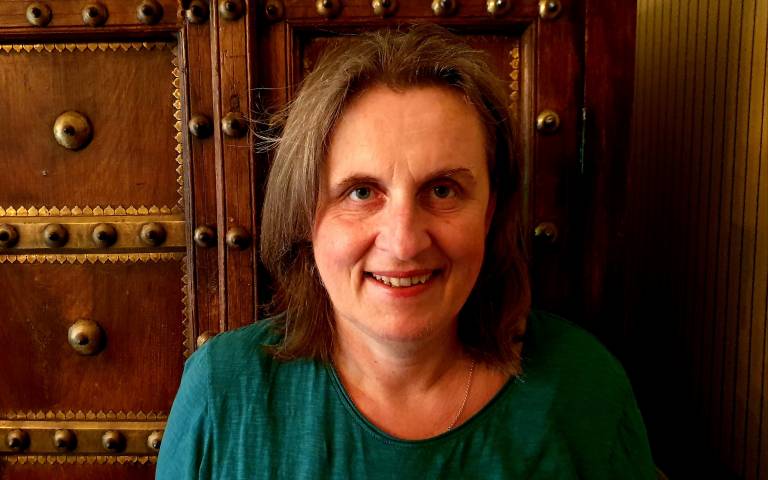Meet the expert: Professor Sonia Johnson

What attracted you to the area of loneliness and mental health and why is it important?
I studied social psychology before I trained in psychiatry, and since then had reflected on the importance of social connection to mental health and the lack of relevant clinical research.
In my non-work life too I’m quite aware of the great importance of social connection – getting people together is something I seem to do in various spheres of my life. Around a decade ago the right moment came to embark on research on loneliness and mental health – a body of work was developing on loneliness and physical health, but not much on mental health.
I had a fantastic PhD student called Jingyi Wang who was looking for a good research project, and we agreed loneliness and mental health was the way to go, the first of a series of projects and grants – but there are still lots of questions to answer.
Social targets for mental health intervention offer a great opportunity for innovative attempts to improve lives and outcomes of people living with mental health problems. Even though the importance of social connection to mental health has long been recognised and service users tend to prioritise it, intervention research is still really limited compared with pharmacological or psychological approaches.
Can you tell us about your current research?
A lot of my research time recently has been devoted to the NIHR Mental Health Policy Research Unit of which I’m Director. Our team at UCL and King’s is funded to deliver a programme of rapid research agreed with policy makers, including at the Department of Health and Social Care and NHS England. This has involved a very wide range of topics, including the Mental Health Act, care for people with a “personality disorder” diagnosis, Covid’s impact on mental health care, including the switch to telemental health, social interventions in mental health, and even the mental health impact of screen time in young children. It’s been a fascinating if sometimes exhausting challenge, and, thanks to a remarkable team, we’ve published research papers in timescales I would hardly have thought possible.
In loneliness research, the UKRI Loneliness and Social Isolation in Mental Health Network, which I’ve been leading with Alexandra Pitman, has seeded projects at UCL and outside that should advance our understanding of the relationship between loneliness and mental health and how to intervene helpfully. An exciting current study is the Community Navigators multicentre trial of an intervention for loneliness among people with severe depression and anxiety: Bryn Lloyd-Evans, with whom I’ve collaborated on many studies, is chief investigator and I’m co-chief investigator, and we think it is one of the very first trials of this scale to focus on loneliness.
Currently I’m also leading the FINCH trial, a pilot trial funded by the NIHR Policy Research Programme of a psychosocial intervention intended to reduce repeat compulsory admissions under the Mental Health Act. There is little research in this important area, so considerable potential to make a difference.
What aspect of your work most excites you and why?
As already apparent, I’m excited by variety! I’ve got involved in research that’s proved interesting and impactful on important unanswered questions in a range of areas.
I’m also excited by the opportunity to help able and enthusiastic researchers to develop their research interests and began establishing a career – I’m very proud of the achievements of people I’ve supported in this way. I’m also seeing some of the researchers with relevant lived experience whom we work with begin to establish academic research careers, for example through doing PhDs – I hope to see much more of this in years to come.
What would you say to someone who is considering whether to study mental health at UCL?
Do it, of course! Naturally I would especially recommend the MSc programme that I lead in the Division of Psychiatry, which is supported by a very talented and enthusiastic course team, and a wider Division whose range of expertise across neuroscience, psychological and social approaches to mental health is hard to beat, allowing a unique integration of approaches. The course is very popular, and one of the main attractions has to be the connections made within our remarkable student cohort, of whose publication record we are especially proud.
What’s the best advice you would give your younger self?
I’m not sure how much advice my younger self needed, as I think it was significantly easier to establish a clinical academic career back in the late 90s than it is today. However, I might stress:
- the importance of sticking with good ideas in the face of rejection (one of my main grants was funded at the sixth attempt – we just made it more expensive each time it got turned down!)
- the need to prioritise having an interesting life outside work and a decent work-life balance (not easy in academia, but important to take advantage of the helpful flexibility it does offer, especially as a parent).
- and finally, the importance of establishing and enjoying collaborations with people with whom one gets on really well.
 Close
Close

